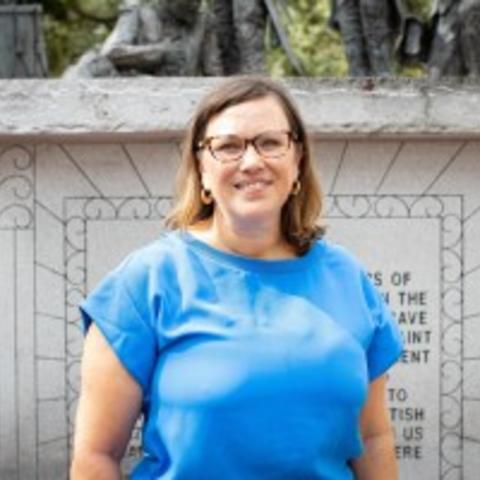
Section Branding
Header Content
‘It seemed like our lives didn’t matter.’ Glynn County residents speak — and act — on Arbery's death
Primary Content
Margaret Coker, The Current
Elijah Bobby Henderson grew up in Brunswick, Ga., surrounded by an expansive emerald landscape of marsh grass interlaced with tranquil waterways that feed the nearby Atlantic Ocean. Three generations of his family helped build this corner of coastal Georgia, working for paper mills, volunteering at church and dedicating time to their historic Black community. But even with his deep roots here, Henderson — a tall, introspective father of five who quotes the Bible and philosophy — hasn’t been immune to the endemic abuse many Black people say they have endured at the hands of law enforcement in Glynn County.
He was in first grade, he says, when a police officer arrested his mother after a mentally ill neighbor attacked her and she fought back. Her self-defense argument wouldn’t matter in court, his grandmother recalled their lawyer saying. Jail was a forgone conclusion because she was Black and lived in Midtown, a neighborhood in Brunswick known for drug dealing. After the neighbor died, Henderson’s mother was convicted of manslaughter and spent two years in prison.
When Henderson was 16, a police officer stopped a car he and his friends were in, on their way to a Saturday board game night. Without offering a reason, Henderson says, the officer drew his gun, ordered the three terrified Black teens to the ground, then handcuffed them and searched the car. When the officer found nothing illegal, he told them to get off the streets and go home.
At 23, a week after he was honorably discharged from the Navy, Henderson was pulled over by a city police officer while he was driving the family minivan. This time, he didn’t mask his outrage when the officer couldn’t provide a reason for the traffic stop. The officer, who was Black, ultimately handcuffed him and took him to the police station. “When it comes to the police, almost everybody has a story like this,” says Henderson, now 46. “Once, you might shrug it off. But again and again? That pattern is self-evident. Black people in Glynn County face racism. Full stop.”
Henderson was reminded of these painful experiences in late spring 2020, when news began to spread about the killing of a 25-year-old Black jogger on a nearby suburban street in February. The original police report claimed that the jogger, Ahmaud Arbery, was a burglary suspect, and no arrests were made. More than two months later, cellphone video was released showing how Arbery was chased by three white men before being shot. Hundreds of people in Glynn County took to the streets in outrage. “We needed answers,” Henderson says. "We needed accountability. We grew up here, but it seemed like our lives didn’t matter."
Arbery’s death sparked Henderson and a small group of acquaintances to band together to try to force this staid county to confront the many failures of its law enforcement and other elected officials. Their group, A Better Glynn, wields a powerful combination of local roots, national experience and professional know-how.

They’re trying to find justice and accountability in an area that’s known for its problematic law enforcement. The 122-member Glynn County Police Department, initially responsible for the investigation into Arbery’s death, has faced several high-profile scandals over the past decade and lost its state certification in 2018 (it hasn’t yet been renewed). A few days after Arbery’s death, criminal charges were filed against the county’s then-police chief and a group of officers stemming from allegations of misconduct that whistleblowers in the department and county residents had been raising alarms about for years. All four have pleaded not guilty and are awaiting trial.
Now, former Brunswick district attorney Jackie Johnson is facing her own criminal charges in her handling of the Arbery investigation — she pleaded not guilty and is also awaiting trial — reinforcing to Henderson and many other residents that multiple layers of government are rotten. “There was zero trust with the police and the whole political system,” Henderson says. “We knew from growing up here how the system worked.
Unless we demanded it, it was never going to change.”
An economic study in contrast
Tourism sites have a name for the chain of barrier islands and miles of marshland encompassing and surrounding Glynn County: Georgia’s Golden Isles. The area is described as “breathtaking” and “quaint,” but omitted from those guides are the area’s racial and economic inequities. Brunswick, a predominantly Black city of 16,000 on the mainland of Glynn County, has a 35% poverty rate, while the entire 85,000-person county is majority white and home to some of Georgia’s wealthiest communities, especially on the resort barrier islands.
Growing up in Brunswick’s public housing, Henderson bridged some of the county’s racial and geographic divides. Recognized as a gifted student, he enrolled in Glynn Academy, one of two public high schools in the county. It is majority white, while its rival, Brunswick High, is majority Black. Academically minded young Black men and women were encouraged to leave town after graduation for better opportunities. Henderson and many of his schoolmates acted on that advice. He joined the Navy, while others enrolled in Georgia Southern University, about 100 miles north, or went to historically Black Morehouse College in Atlanta.
In 1998, after nearly five years in the Navy, Henderson resigned from his commission as a certified nuclear electrician at Virginia’s Norfolk Naval Station. He and his wife moved back to Brunswick, intending to raise their sons around extended family. Within weeks of his return, he was rethinking that decision when he was pulled over in his Dodge Caravan, littered with toys and cookie crumbs. The officer wouldn’t initially say why he pulled him over, recalls Henderson. Then he insisted that Henderson’s Georgia driver’s license was invalid in the state because Henderson had Virginia plates. But Henderson was still within the grace period to change his plates. “I knew the law better than he did,” says Henderson. “He didn’t like being talked back to, and when I refused to sign his BS citation, he was going to make me pay for being uppity.” The officer put Henderson in the back of his police cruiser and drove him to the station. When they arrived, one of Henderson’s cousins, who worked for the city, helped defuse the situation. “That’s the only way I got free,” Henderson says.
Over the next two decades, Henderson and his family settled into their new life in his hometown. He worked as a manager for Georgia-Pacific, the venerable pulp and paper company that is one of the county’s largest employers. He and his wife successfully got their older sons through high school and into college and were raising young twin boys. In his free time, Henderson mentored young Black men, some of whom were growing up in Brunswick’s public housing projects. And he observed the same issues he had years ago: a criminal justice system uninterested in enforcing the laws equally for all of Glynn’s diverse residents.
Police audit raises warning flags
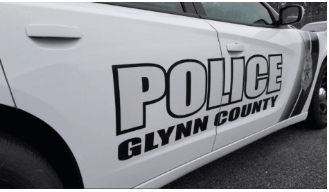
Around 2015, Henderson and other residents started to hear about controversial shootings involving the Glynn County Police Department, one of two main agencies that patrol and serve the area. There were also at least a dozen civil lawsuits alleging misconduct by officers, including racial profiling and wrongful death, between 2010 and 2019. The lawsuits were dismissed on the grounds of qualified immunity, which protects governmental employees, including police, from personal liability unless there is a clearly established constitutional violation. The district attorney’s office in Brunswick declined to prosecute a single officer, according to public records.
A 2017 audit of the county police department highlighted many of the policing deficiencies that Henderson and his community had long been concerned about. In the 154-page report, the International Association of Chiefs of Police (IACP), a nonprofit agency that assesses police forces across the country, stated that it couldn’t identify a specific department policy dealing with unbiased policing and was unable to determine if diversity training was conducted or whether accurate records of it were being maintained in training and personnel files.
The report also noted that the force “may not be collecting comprehensive demographic data on all law enforcement contacts.” Many police departments across the country collect demographic data, like race, during traffic stops to evaluate bias. Georgia is one of 27 states that does not mandate it, and Glynn County police track demographic information only for vehicle stops that result in citations. “The GCPD would benefit from a more proactive policy on the gathering of data on citizen contacts,” the IACP report explained. “Processes of this nature provide organizational and individual accountability, and they also contribute to public trust.”
In total, IACP listed about 100 changes the department should make to increase professionalism, accountability and trust with the community. Based on public meetings in mid-2021, it appears the department has not implemented the recommendation to more aggressively collect demographic information — nor has it acted on dozens of others. (The department did not respond to interview requests, but a Glynn County police spokesperson said via email that the department “is actively assessing the IACP audit recommendations and contemplat[ing] making changes where it’s deemed appropriate.”)
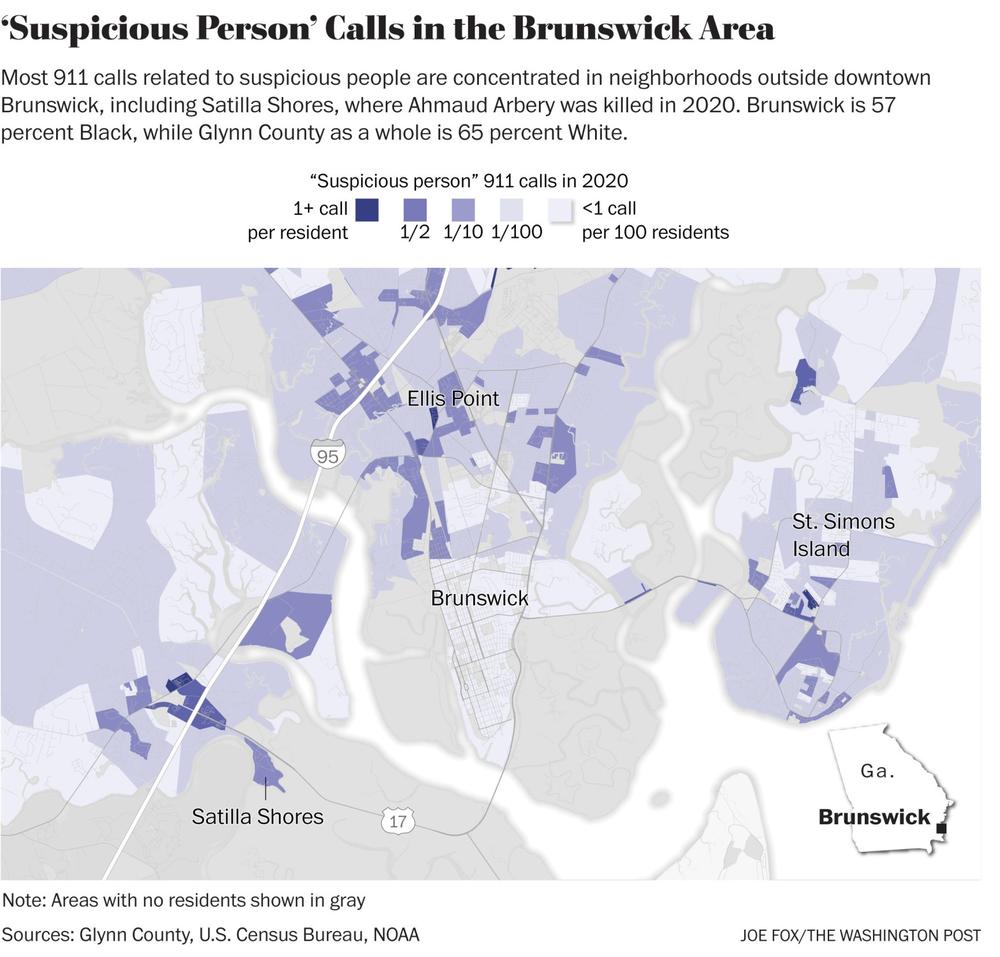
A different analysis — of 911 calls reporting “suspicious persons” — offers a glimpse into biases within the county’s community that could contribute to policing problems. “Suspicious persons” is a catchall category used when reporting what residents believe to be unusual events. Generally, it is understood to be a stranger who makes a caller uncomfortable or a person considered out of place in a certain neighborhood. “In Georgia, typically it becomes a euphemism for white people who are uncomfortable with Black people,” says Chris Bruce, policy director of the American Civil Liberties Union of Georgia.
While Brunswick and Glynn County are separate police jurisdictions, they share emergency services support such as a 911 call center. Between 2018 and 2020, residents called 911 operators 16,838 times to report “suspicious persons” in their neighborhood. Most of those calls were concentrated in suburban neighborhoods that, according to census data, are predominantly white. The city of Brunswick, which accounts for 19% of the county’s population and is majority-minority, made less than 1% of the calls.
Between August 2019 and late February 2020, 911 dispatchers for Brunswick and Glynn County received 11 calls reporting suspicious activities from Satilla Shores, the mostly white neighborhood about two miles from Arbery’s mother’s house. On Feb. 11, one of the white neighbors tried for Arbery’s killing, Travis McMichael, called a 911 operator and described a Black man whom he had never seen in his neighborhood. On Feb. 23, Travis, his father, Gregory, and another neighbor, William “Roddie” Bryan, chased and murdered Arbery in Satilla Shores. In court, the McMichaels’ lawyer argued that they pursued Arbery because the father and son thought Arbery might be behind alleged break-ins in the area. Separately, Travis has claimed that his gun had been stolen from his unlocked car some time before Arbery’s death. No one has been arrested for that incident, and no public information supported the theory that Arbery was involved in any thefts.
While the definition of a “suspicious person” is vague, members of Glynn County’s Black community are aware they easily could be labeled one. “Black people think twice about where they go. This is the essence of Black life,” explains Henderson, adding, “ ’Maud’s killing showed us [that] in Technicolor detail.”
Whom do police consider a threat?
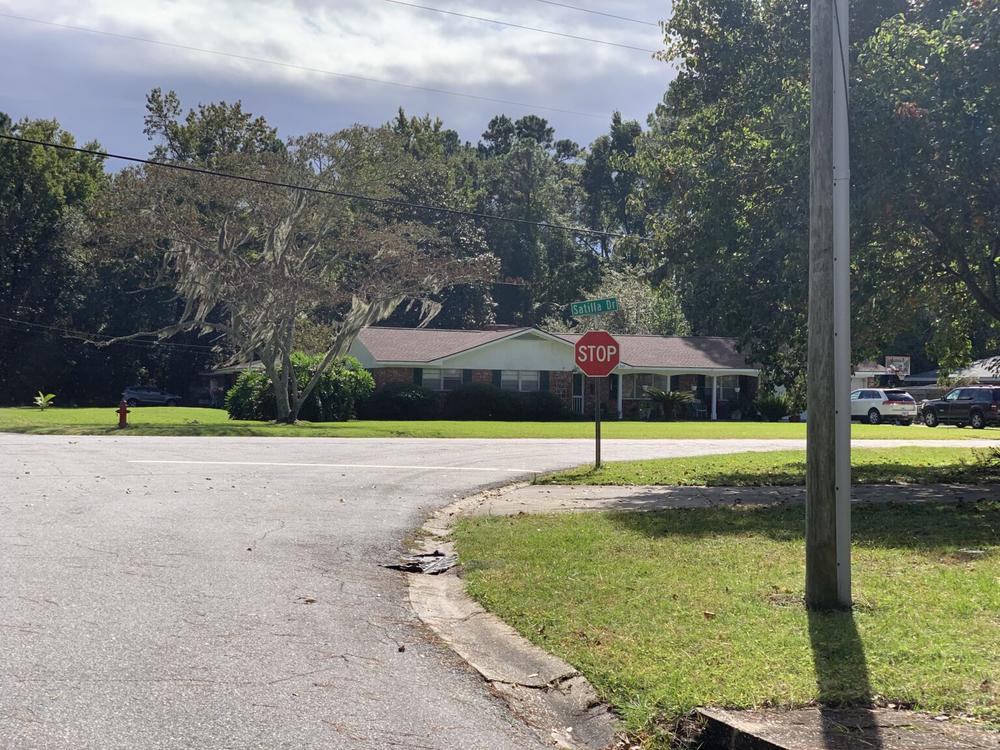
The first Glynn County police officer arrived in Satilla Shores minutes after Arbery was shot. The officer didn’t disarm the McMichaels, nor did he check Arbery’s pulse or initiate any emergency medical aid, according to body-camera footage. Later, as multiple county police units worked the scene, no one arrested the men. Two prosecutors who viewed a cellphone video of the shooting recorded by one of the suspects and police body-camera footage believed that the scenes did not constitute a crime. Lawyers for Arbery’s parents say that the treatment of the McMichaels can be attributed to Gregory McMichael’s close ties to Jackie Johnson’s office when she was district attorney, where he once worked. (The McMichaels’ lawyers and the current district attorney’s office declined to comment.)
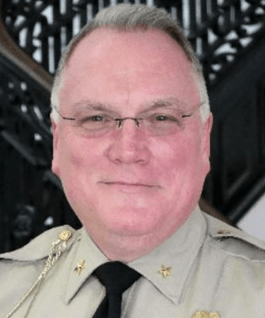
The police, meanwhile, were suffering from a leadership vacuum. On Feb. 27, unrelated to Arbery’s killing, Johnson announced indictments against Glynn County Police Chief John Powell, his former chief of staff and two members of the narcotics unit that included influencing a witness and violating their oaths of office for ignoring evidence that another officer was consorting with a drug dealer. The county put Powell on administrative leave with pay. For more than two months, the Arbery investigation went nowhere, while local officials recused themselves — first Johnson (soon after the shooting), then the prosecutor in the neighboring jurisdiction. (Johnson is facing criminal charges for allegedly “showing favor and affection” to the older McMichael and shielding his son from arrest. Johnson’s lawyers did not respond to interview requests.)
Most everyone Henderson knew had a link to the Arbery clan, whose ties to Coastal Georgia stretch back generations. Henderson’s oldest son briefly worked with Arbery at a fast-food restaurant. Other friends had sons who played football with Arbery at Brunswick High School. Arbery’s death manifested Henderson’s worst nightmares as a father around how local police, and the larger world, might treat his Black boys. “I was born in the Brunswick projects and survived this place,” he says. “But sometimes it just feels like luck. I know what the world can do to a Black man. … I made myself sick with worry that what happened to ’Maud might happen to my boys.”
John C. Richards Jr., who grew up not far from Henderson before leaving to attend Morehouse and then law school at Howard University, knows Arbery’s cousin. After the killing, he reconnected with Henderson on Facebook, where Brunswick residents gathered to vent and mourn while the pandemic continued, and the two soon forged a close friendship. “The community was terrified and outraged,” says Richards, a lawyer and ordained pastor. “These two emotions are explosive elements that can bring folks together or tear a community apart.”
When the cellphone video of Arbery’s killing was released on May 5, it went viral. Shemeka Frazier Sorrells, a strategic consultant who was born in Brunswick, saw the video as she was driving from Atlanta to Glynn, where she was closing on a house. “I knew that I needed to stay and do something,” she says. “There was an urgency to what needed to be done.” She soon connected with Henderson and Richards online.
The footage brought widespread scrutiny to the area. Georgia’s Republican governor, Brian Kemp, called it “absolutely horrific.” The Georgia Bureau of Investigation took over the case amid the growing perception that Arbery’s death was racially motivated and covered up by law enforcement. On May 7, the GBI arrested the two McMichaels. Glynn County Commissioner David O’Quinn sent an email that week to his six board colleagues, demanding they fire the indicted police chief, John Powell, which is within the commissioners’ authority. The email, obtained through a public records request, referred to Powell’s alleged mishandling of the Arbery case and previous scandals, including a double murder-suicide committed by a county police lieutenant and a looming civil suit filed by a victim’s family.
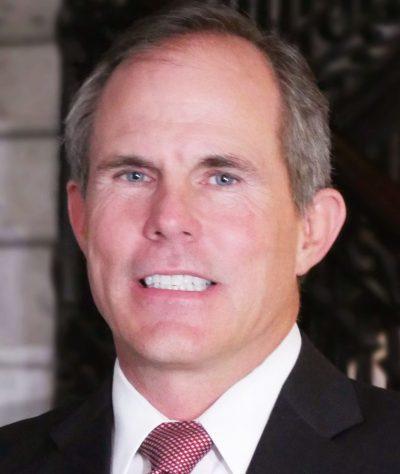
“Our community is broken and [divided],” wrote O’Quinn, who is white. “We have to put the community first. A step in the right direction is to fire John Powell. He has been a cancer and as long as he is on the payroll, he will be a cancer in this community.” There may have been informal discussions around a resignation package for Powell, according to a spokesperson from the county attorney’s office. But no formal offer was presented by the commissioners. Powell stayed on administrative leave. (Glynn County commissioners and Powell’s lawyers did not respond to interview requests.)
Henderson and Sorrells were marching in the streets of Brunswick, chanting “Black lives matter,” but that didn’t feel like enough, and, along with Richards, their discussions on the topic deepened. They considered how Sorrells and her husband hoped to settle in a more progressive Brunswick than her parents and grandparents had known. How Henderson wanted assurances that his sons could have a fair shake from the police. How Richards thought there should be better social services for everyone in the city. On June 12, Richards wrote: “What we all want is a better Glynn.” Thus, the group — A Better Glynn — was formed.
They decided on three priorities: new leadership in the Glynn County Police Department, a new district attorney and more police accountability. “It was like a light went off for all three of us,” Sorrells says. “This became our cause.”
Concerned citizens want better
The members of A Better Glynn knew they couldn’t take on Glynn’s board of commissioners, made up of six white men and one Black man, by themselves. So, they joined forces with Community First Planning Commission, a group of Black pastors and other leaders who are admired for their years of organizing economic opportunity for Glynn’s low-income residents. Together, Henderson thought, they’d make a good one-two lobbying punch.
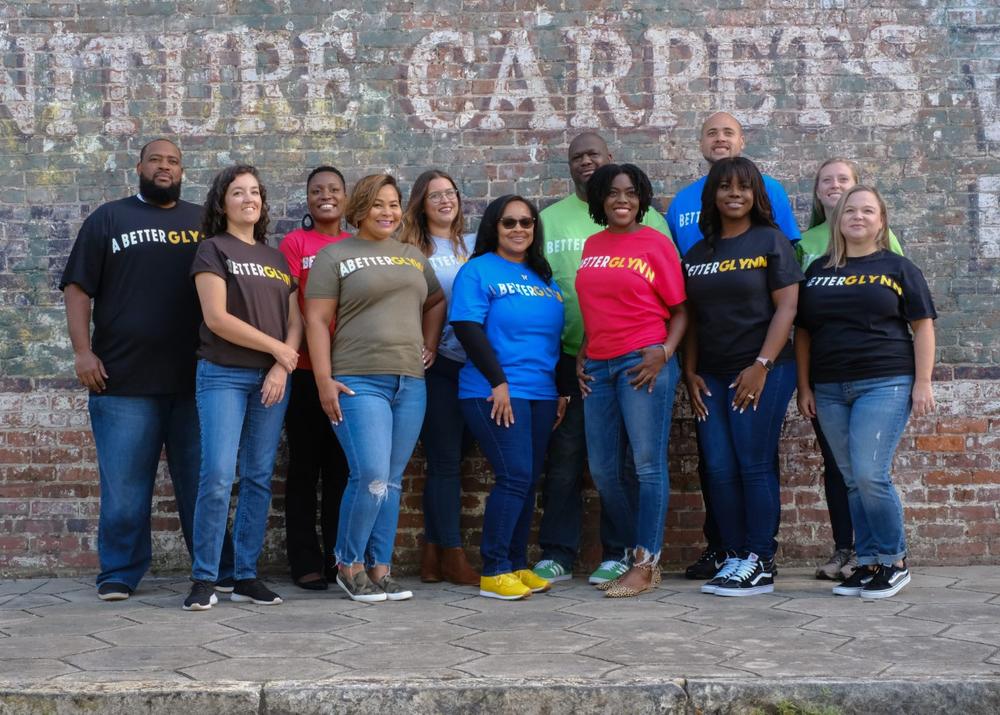
During the summer of 2020, the commissioners started a search for a new police chief. A Better Glynn, with its desire for an overhaul of the local force, didn’t want to be excluded from the discussion. Richards reached out to Nadine Jones, a Howard Law School friend and the co-founder of a group dedicated to advancing relations between police and communities of color called the Initiative. With Glynn County becoming synonymous with America’s racial reckoning, Jones told A Better Glynn she could find grant funding for the National Organization of Black Law Enforcement Executives (NOBLE) to recruit police chief candidates. A Better Glynn brought this proposal to the commissioners. The group was transparent about its desire to hire a person of color and an outsider to clean house. The members thought the message of change would be easier to accept given the savings they were offering taxpayers, because they had, in fact, secured a grant to cover NOBLE’s $10,000 recruitment search fee.
In January 2021, the commissioners formally removed Powell from his position and payroll, nearly a year after his initial indictments. They rejected the offer to work with NOBLE, without public discussion on the matter. The commissioners decided that they would rely on the Georgia Association of Chiefs of Police to head-hunt a new chief, at a cost of $7,200 to $9,000, something A Better Glynn publicly opposed, contending that it wouldn’t spark institutional change. A Better Glynn refused to let the issue go.
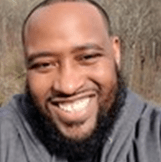
Henderson and fellow group member Jason Vaughn got on the agenda for the next commissioners’ meeting, challenging them in public to explain their rationale.
Vaughn, a football coach at Brunswick High School, demanded to know why the board declined a proposal that would have saved the county money. “I’m concerned, because once again it seems that the citizens must labor and fight to do what is right instead of our representatives,” he said.
A few days before the first anniversary of Arbery’s death, the commissioners made an about-face. In a meeting with Community First, they agreed to involve the group as well as NOBLE in the recruitment of a police chief. (The Georgia Association of Chiefs of Police remained involved.) In a joint statement, the commissioners and Community First declared they were united in “restoring the confidence of the Black community in Glynn County by advancing institutional actions that encourage systemic transformation in the department.” A Better Glynn saw this as a win — but also a lesson about how getting things done wasn’t going to be as straightforward as they would like, says Sorrells.
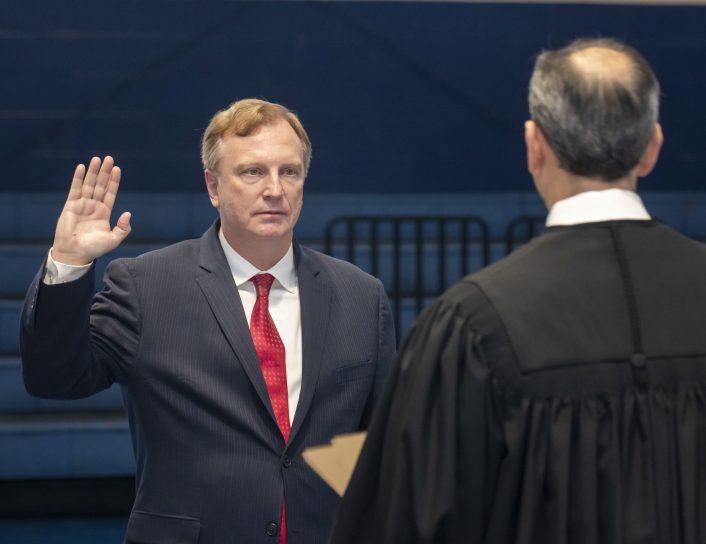
The victory came shortly on the heels of another triumph: the unseating of Johnson, the district attorney. Through the fall of 2020, as COVID-19 raged in Southeast Georgia, A Better Glynn used social media to encourage voter turnout and educate locals on the down-ballot district attorney’s race. “Justice starts at home” was one of its get-out-the-vote messages. In November, Johnson, who had run unopposed for 10 years, lost to former assistant district attorney Keith Higgins in a landslide. For Henderson, success was measured in turnout. The race drew nearly the same number of total local votes as the 2020 presidential election. “People knew not to leave this box blank,” he says.
In April, with its momentum building, A Better Glynn’s ranks grew from the original five volunteer staff members to 13. They divided their duties into five core categories: watchdogs for the county commissioners and Brunswick City Council, voter education, social justice, leadership training, and youth activities. The group applied for 501(c)(3) nonprofit status and broadened its partnerships with voter education and criminal justice reform organizations.
Proposal for accountability
Together with Community First, the advocates also turned to the objective of installing a citizen review board over both the county and Brunswick city police. For this project, Sorrells used her professional networks in Atlanta and called up Chris Bruce of the ACLU, whom she knew from a national leadership program. Bruce, a military brat like Sorrells and a lawyer like Richards, drafted a proposal primarily based on Atlanta’s Citizen Review Board. The version for Glynn envisions an 11-person body with representation from each of the county’s electoral districts, as well as a representative from A Better Glynn. “A Better Glynn had a great grasp on issues that veteran community groups take years to master,” says Bruce. “Their batting average is inspiring.”
The organizations have been shopping around the proposal, but the Glynn commissioners have so far been noncommittal. Instead, the board has focused on a body of its own creation: a police advisory panel made up of local experts and county officials, several with experience at the Federal Law Enforcement Training Centers, an organization with headquarters in the county. The panel is working with the county police to implement the 2017 audit recommendations and restore the Glynn County Police Department’s state certification.
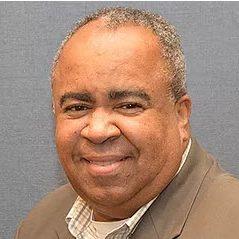
In addition, the commissioners have high hopes for the county’s new and first Black police chief, Jacques Battiste, a veteran FBI agent with policing experience in his native New Orleans. In his first public appearance, organized just before the commissioners voted on his hiring, the county had a question-and-answer session with Battiste, who addressed topics that were submitted in advance. In that setting, he expressed positive views of the proposal for a citizens review board: “It allows the citizens to have a greater transparency into what goes on in the department.” The commissioners also organized a private meeting between Battiste and A Better Glynn before announcing him as their finalist. While Sorrells is more willing to give him a chance, Henderson left wary of his ability to make radical changes. “He doesn’t have any networks here except with the commissioners. That’s going to tie his hands,” he says. (Battiste’s office did not respond to requests for an interview.)
In a late August virtual meeting of the commissioners’ police advisory panel, Battiste offered a partial update on the checklist of reforms outlined in the 2017 audit, conceding that the force had a long way to go. For now, the department was updating its procedures and policy manual — another fundamental recommendation from the audit — and revising its use-of-force policy. (The meeting was not open to community questions.)
Battiste has also ramped up a recruitment drive at historically Black colleges and universities. The IACP audit noted that only 12% of sworn Glynn police were African Americans in 2017, even though African Americans made up about 27% of the county’s population. In 2021, the department says, 15% of its sworn officers are African American, while people of color make up 22% of the force. The new chief said candidates from diverse backgrounds were in the pipeline to take some of the current vacancies.
Justice means a steep road
Amid A Better Glynn’s accomplishments and growth, Elijah Henderson found himself stuck in another deep funk this summer. As a brief respite, the Hendersons traveled to Atlanta for a vacation in August. His twins were entranced with the aquarium and the free soft drinks at the World of Coca-Cola museum. But Henderson couldn’t turn his mind off from his community’s troubles. Soon after they got back to Brunswick, the area’s COVID cases and deaths per capita skyrocketed, forcing all county schools back to distance learning, while the Glynn County Board of Education declined to mandate mask-wearing. A mobile morgue was brought into the county to handle the rising deaths. County offices shut down completely to the public.
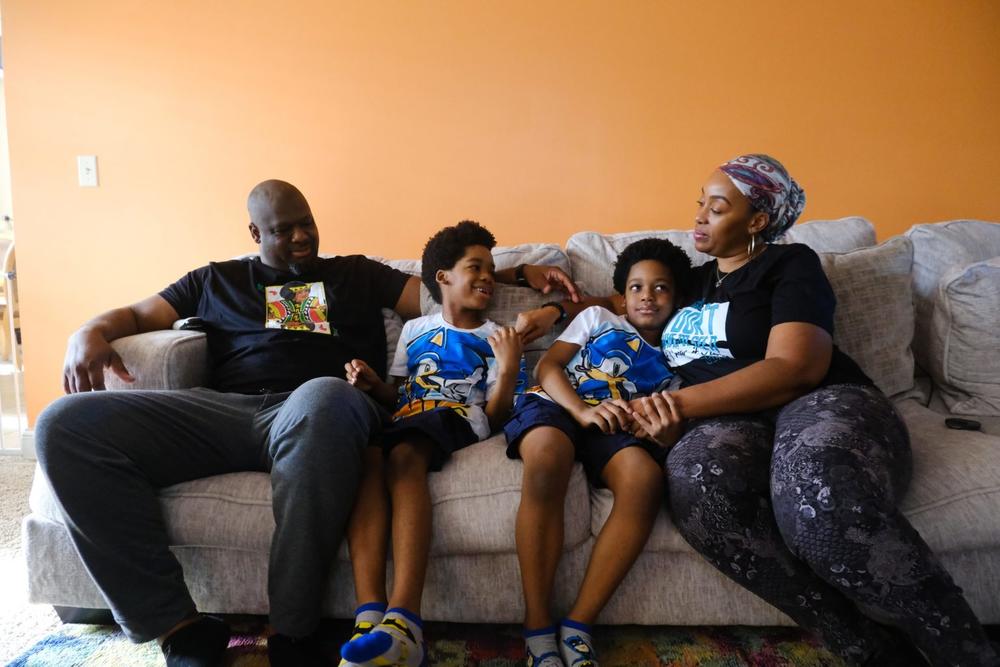
Henderson’s heart was heavy with the grief of more friends and acquaintances dying. His worries were affecting his relationship with one of his older sons. “He’s tired of me nagging. He thinks I don’t understand him,” Henderson says.
While the nation watched how Glynn County residents will adjudicated Arbery’s case in court, Henderson’s expectations of meaningful change tempered. Justice is not as simple as a guilty verdict in Arbery’s case, he says, and the goal of long-term change still feels far away. A Better Glynn has been an extraordinary source of support and resilience, but each of the group’s founders feels drained after so many months of hard work. Henderson doesn’t want to end up like the generations of Brunswick residents he remembers from his childhood, weary and ground down by the indifference to change among the officials who have run the county for so long.
The stakes are too high, he says: “For my sons and for the other Black sons in Glynn County, we cannot afford the status quo.”
This story was supported by the Fund for Investigative Journalism. Nicholas Perez, a data reporter for the Current, contributed in addition to The Washington Post’s Joe Fox and Steven Rich.
This story comes to GPB through a reporting partnership with The Current.

